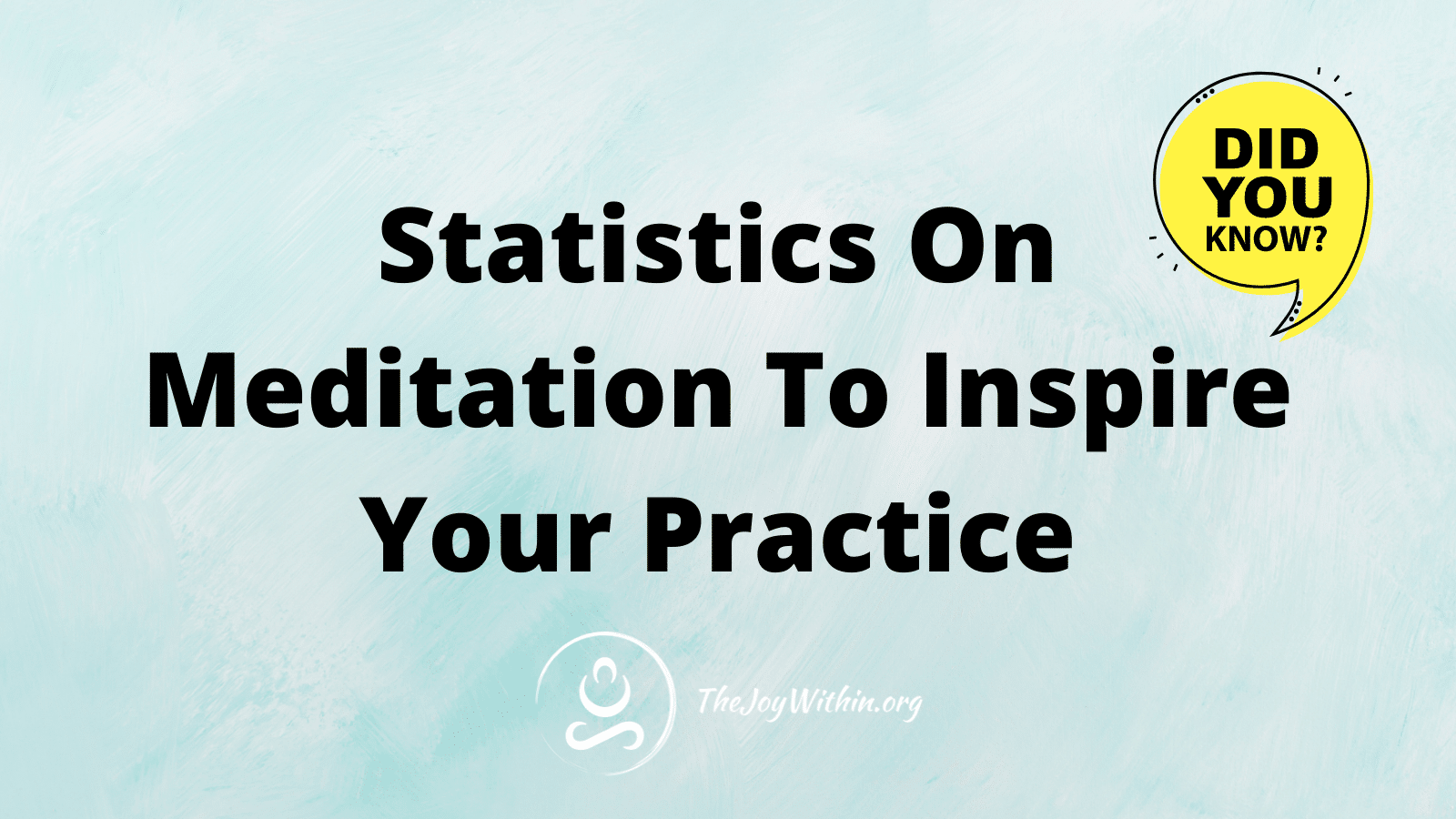If you’ve been on the grid in any way over the past few years, you’ve probably heard a decent amount of chatter about meditation.
From TikTok to The New York Times, our society is taking the time to recognize the benefits of meditation and mindfulness, one post at a time.
While the concepts themselves are not new, the recent burst into the mainstream has gotten a lot more minds wondering if, and how, it can work for them.
Where’s The Proof?
Just like with any new concept, we often need some sort of proof in order to lend our minds to the idea.
Lucky for you, there is a ton of research out there proving the benefits of mindfulness and meditation practices.
Thus, we’ve put together a list of facts and statistics to help inspire you to begin your journey.
WHO is meditating?

- The number of people who meditate globally is estimated to be anywhere between 200-500 million. (MindWorks)
- 14.2% of American adults surveyed in 2017 said they had practiced meditation at least once in the last year. (Centers for Disease Control and Prevention).
- As of 2017, almost 15% of US adults meditate. That’s triple the amount compared to in 2012. (NCCIH)
- 7% of children in America meditate. (2017 National Health Interview Survey)
- Meditation is growing in popularity on a daily basis. The mindfulness app Calm generated over $150 million in revenue in 2019 alone. (Business of Apps)
- 94% of women say they have found meditation helpful. (NCBI)
WHY are people meditating?

- Meditation can reduce the wake time for people with insomnia by up to 50%. (National Center of Biotechnology Information)
- Mindfulness meditation can reduce depression relapses by up to 12%. (American Psychological Association)
- Meditation may reduce PTSD symptoms 73% of the time. (Medscape)
- Compared to those who were only taking medication, back pain sufferers practicing meditation were more likely to experience a 30% improvement in their ability to carry out daily tasks. (NIH National Library of Medicine)
- Statistics on mindfulness reveal that 35% of people meditate to reduce stress. (NCBI)
- Meditation can reduce the risk of being hospitalized for coronary disease by 87%. (American Heart Association)
Meditation in the Real World

- Visitacion Valley Middle School in San Francisco reduced suspensions by 45% after introducing a meditation program. (NBC News)
- University of Miami-led research study showed that mindfulness meditation exercises positively supported active-duty Soldiers in protecting and training their minds to stay focused, and better prepare them for high-stress combat situations. (U.S. Army)
- In one study of cigarette smokers, those who practiced mindfulness were significantly more likely to stop smoking by the end of the training (and beyond) than those who used conventional treatment. (NIH National Library of Medicine)
- Statistics show that 52% of employers offered mindfulness training in 2018. (National Business Group on Health)
Hopefully, one or all of these statistics has resonated with you, or helped you to better understand the benefits of meditation and mindfulness.
Wherever you are in your journey, remember that your mindset is the most important thing. Without the belief that these techniques and practices can work, you are only wasting your time going through the motions.




